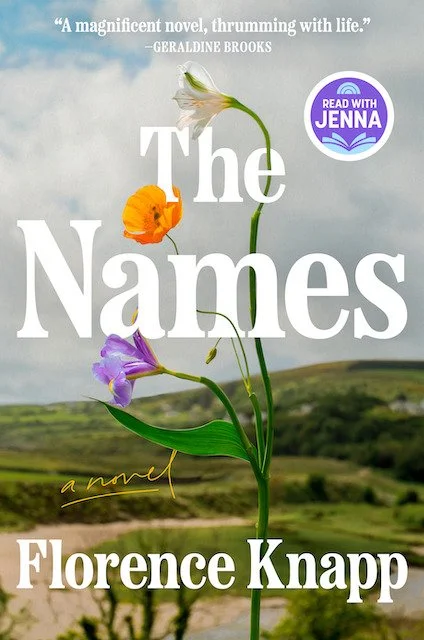The Names by Florence Knapp
Choosing a name
It’s 1987, and in the aftermath of a storm, Cora, pushing a pram, make their way through debris strewn streets with her daugher Maia, to register the name of her son. Her domineering GP husband has demanded she name him Gordon after him.
But she hesitates. Maia wants to call him Bear, a nicknames she has given him. Cora likes the wildness of it, and dares herself to go with it. She herself likes Julian, meaning Sky Father. She believes she can placate her husband with it.
Choosing each of these names has consequences, so we follow three alternate times over thirty five years, catching up with the characters every seven years.
‘Tomorrow - if morning comes, if the storm stops raging - she'll register the name of her son. Or perhaps, and this is her real concern, she'll formalise who he will become.’
Identity
Each version of Gordon/Bear/Julian grows up in differing circumstances, taking slightly different paths as a result of his name. He’s affected by parenting, by loss, by socialisation, his own choices.
But for me, the book is not so much about how a persons name defines them, rather how the abusive husbands reactions to the choices shaped the lives of Cora and her children. It’s a heavier book perhaps than I’ve perhaps described so far, featuring domestic abuse, often graphically depicted.
Writing
Part of the authors skill is in making these characters the same but different in each of the timelines. It’s difficult to describe without giving too much away, but I was generally able to tune into each of their lives. Towards the end I was beginning to get a little confused as to ‘which’ of the minor characters, such as Maia, that I was reading about, but I eventually worked it out.
It’s pacey without being a page turner, and the structure, as I’ve said, works well. It’s definately an inpressive debut. There’s an undercurrent of sadness throughout, sometimes of opportunties missed, of grief. But the heaviness mostly comes from the domestic abuse, often graphic.
Some of the Irish scenes didn’t quite ring true to me - it sometimes felt like the writers ‘idea’ of Ireland but it didn’t overly bother me. They just felt like a convenient backdrop. There wasn’t really much of a sense of a place to the book - it occupies an emotional space, not so much physical.
Is it wrong of me to want to have read more about the abuser? His appearances were fleeting and he seemed a bit one dimensional. It’s not his story, I know, but in the timelines I had a curiosity as to what became of him.
What’s in a name?
I’ve also been reading ‘Happiness beyond thought’ by Gary Weber, and as is sometimes the case these days, there was a synchronicity between the two books, though both totally different. Weber talks about using your name for meditation, by repeating it silently or aloud, and looking for where it arises. Apparently this was a favourite of the English poet, Wordsworth.
What sound do you respond to when your hear your name? Where does your name go when it passes from consciousness? What energies are generated when you hear your name, and can you sit with them?
Summary
I liked this well enough and thought the premise was a good one. It had a good pace and I found myself generally happy to lift the book again to begin with. However, I felt it sort of petered out. Did it completly grab me? Nope - I did like the concept and the author worked it well, especially with such a difficult subject matter, but the book never swept me away. Sometimes you can’t give yourself over to a book completely and you never quite understand why, but there it is.
328 pages, Hardcover
Published
May 6, 2025 by Pamela Dorman Books
I no longer include Amazon links in my reviews. Please support your local library and bookshops. Libby is also great.
If you do wish to purchase online, feel free to support independent bookshops and contribute to the hosting of this website by purchasing via Bookshop.org


